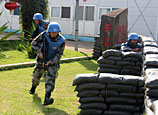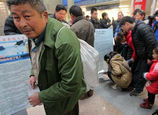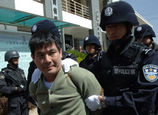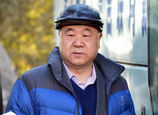
BEIJING, March 2 (Xinhua) -- China's space station, which is expected to be completed around 2020, will set an example of green technology, a Chinese space scientist said.
The space station will use a slew of cutting-edge technologies in flight control, power supply and waste recycling, Zhou Jianping, designer-in-chief of China's manned space program, told Xinhua.
The green technologies to be applied in the station will raise its recycling rate and reduce its reliance on input from the ground.
For example, waste water and urine will be used to extract oxygen, and carbon dioxide and other human waste will also be recycled, Zhou said.
To meet the power demand of the space station, power generation from solar cell will be made more efficient and the life-span, reliability and safety of energy storage batteries will also be improved, he said.
"All these technologies can be applied on the earth in the future," Zhou said.
PLATFORM FOR INT'L SCIENTISTS
Zhou said the space station will offer scientists from around the world opportunities for research and experimentation.
He said the space station, which is aimed at engaging in space exploration and research on space resources, consists of three capsules, including a core module and two laboratory units. It is capable of docking one freight spacecraft and two manned spacecraft, and the entire system will weigh over 90 tonnes.
The space station has been designed to accommodate three Chinese astronauts who will work in half-year shifts during its operation period, but new capsules can be added as needed for scientific research, Zhou said.
"In light of the current demand and cost factors, we are not going to build an international space station, but one of moderate size that meets the demands of scientific experimentation and technological testing, and its flexibility in adding capsules will enable us to adapt to the demands of the most state-of-the-art technological research," Zhou said.
Zhou is to attend the annual session of the National Committee of the Chinese People's Political Consultative Conference, the top political advisory body, scheduled to open on March 3 in Beijing.
















 Beijing sees sunny day as two sessions to open
Beijing sees sunny day as two sessions to open


![]()
